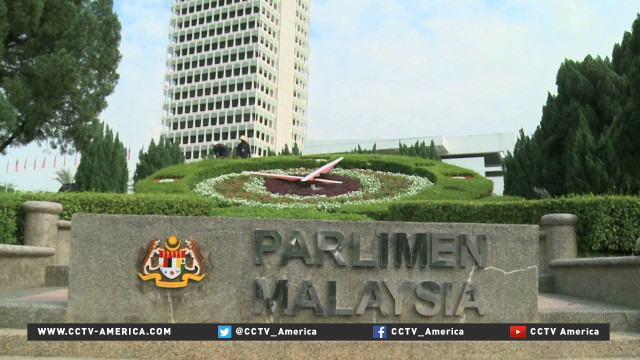Malaysia is expected to introduce a new anti-terror law. The government hopes to stem the flow of its citizens going abroad to fight with terror groups such as ISIL.
The measure is predicted to crack down on other domestic security threats. Critics fear legislation will include elements of a tough law that was a holdover from British colonial rule, and which the government only scrapped a couple of years ago. CCTV’s Rian Maelzer reported this story from Kuala Lumpur.
It came as a surprised to many when Malaysian Prime Minister Najib Razak announced in 2011 that his government would repeal the Internal Security Act.

The law was intended to combat armed insurgency and allowed for indefinite detention without trial or charges. Critics argued it was used against political opponents far too often.
Others, though, believe it helped keep a lid on extremism, including post-9/11 Islamist militancy.
“The ISA was quite effective. Those people who are in control of the security apparatus were not in favor of the removal of the ISA because the principle of the ISA is of course preventive detention. Preventive detention meant that you want to nip the problem in the bud,” Security analyst Zakaria Ahmad said.
Malaysia’s government said it is looking at bringing back elements of the Internal Security Act when it introduces a new anti-terror bill in March.
This decision worries Tian Chua, a social activist who became a member of parliament who was jailed for two years under the ISA. The courts later awarded him compensation for wrongful detention.
“When security forces can just nab anybody without going through the stringent necessity to gather evidence against a person’s liberty then it tends to make the security forces complacent,” Chua said.
A law that replaced the ISA allows for 28 days detention without trial, which Chua believes is sufficient to combat threats like Islamic State.
“The Islamic State entered at a convenient time for the government to justify why they need to reintroduce the law,” Chua said.
Many members of Najib’s ruling party opposed getting rid of the ISA in the first place, and the party’s grass roots have been pushing for its return. They argue that eliminating the preventive law has reduced the government’s ability to combat threats to national security, both homegrown and foreign.
 CGTN America
CGTN America
